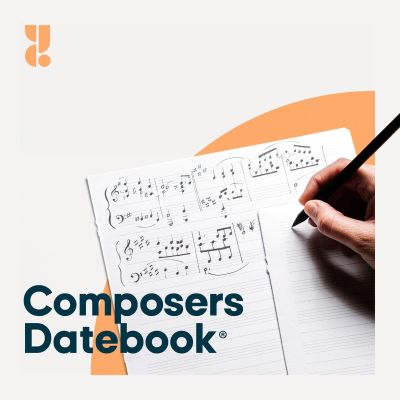Composers Datebook™ is a daily two-minute program designed to inform, engage, and entertain listeners with timely information about composers of the past and present. Each program notes significant or intriguing musical events involving composers of the past and present, with appropriate and accessible music related to each.
Liszt gets political
In essence, the music of the 18th century was an international, cosmopolitan language, but just as “nationalism” in language, culture, and politics came to the fore in the 19th century, so did the radical new idea that each nation should develop its own, distinct, “national” style of music. On today’s date in 1840, a dramatic manifestation of this new trend occurred in the city of Pest. The Hungarian-born piano virtuoso and composer, Franz Liszt, returned in triumph to his native land for a gala concert at the Hungarian National Theatre. After the performance, several Hungarian aristocrats, decked out in lavish native costumes, presented Liszt with a bejeweled “Sword of Honor,” and delivered speeches in Hungarian praising him as an artist and patriot. For his part, Liszt delivered an equally impassioned speech calling for Hungarian cultural and political independence. The patriotic audience went berserk with joy and began a torchlight procession of some 5000 people through the city, with Liszt at the front. It’s one of those nice, ironic touches of history, however, that Liszt, the standard bearer for Hungarian national music, didn’t really speak Hungarian very well, and, for the record, delivered HIS patriotic address in French.
